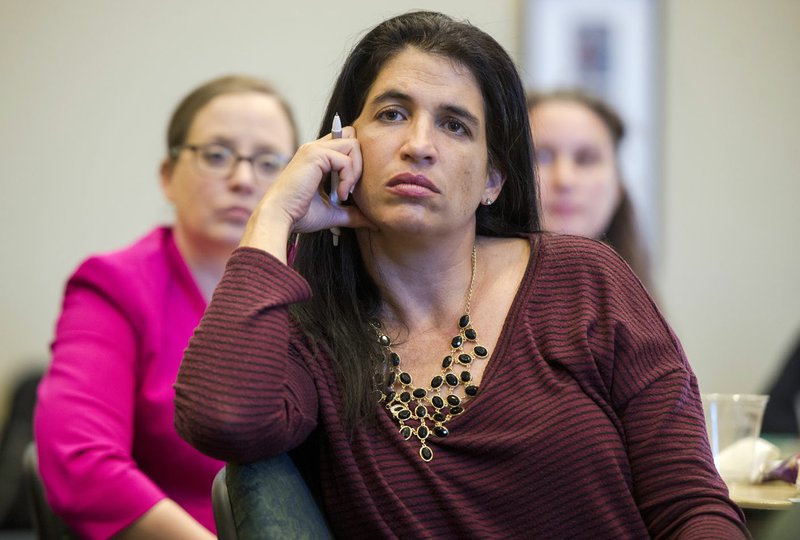BENTONVILLE -- Employers should be equipped to accommodate and assist domestic violence victims, business professionals and community members were told Thursday.
Northwest Arkansas Community College and the Northwest Arkansas Women's Shelter hosted a forum at the school with a grant from the Bikes, Blues & BBQ Motorcycle Rally.
The panel
• Larissa Ivy, senior director Insider Trust at Wal-Mart
• Wendi Cadle, human resources director at Northwest Arkansas Community College
• Angelique O’Bryan, founder, business strategist at Filament Consulting
• Nathan Smith, Benton County prosecutor
Source: Staff report
The panel discussion focused on how to detect and take action if an employee or co-worker is a victim of physical or emotional domestic violence.
Panelists discussed what constitutes domestic violence, how employees can report it, how managers and company leaders can create an active instead of reactive atmosphere to address it and what employers can do to accommodate victims.
Todd Kitchen, vice president of Student Services and panel moderator, cited a statistic 1-in-4 people will be a victim of domestic violence.
Employers can move an office, change work hours and provide an escort when an employee walks to her car, all in an effort to make her feel more safe at work, said panelist Wendi Cadle, human resources director at the college.
"There's all kinds of things you really can do," she said, explaining an accommodating employer will likely see a productive and thankful employee once the threat of violence is gone.
It's also a great idea to ask the employee what she needs because it could be a suggestion that isn't obvious to the employer, fellow panelist Angelique O'Bryan, founder and business strategist at Filament Consulting, said.
Panelists emphasized domestic violence can also be economic abuse, where the abuser controls or limits the victim's access to finances, forcing the victim to be dependent.
It can also start small and gradually intensify. A good relationship doesn't become life threatening overnight, a couple panelists pointed out.
Large companies such as Wal-Mart have procedures and teams that deal with this issue, but smaller businesses may not be aware of the issue or be as hands-on addressing it, said Amber Lacewell, director of community outreach and education for the Women's Shelter.
"It's something that's statistically happening in our workplaces, our co-workers are affected, but there's not really a lot of talk on how we address this," she said about why the shelter and college held the panel.
A Corporate Alliance to End Partner Violence 2005 survey found 21 percent of full-time employed adults were victims of domestic violence and 64 percent of them indicated it significantly impacted their work performance.
NW News on 10/27/2017

